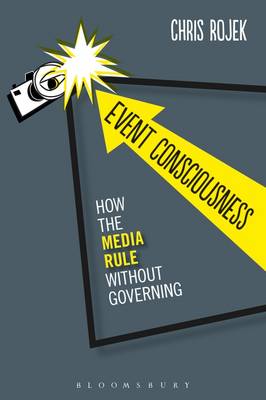While neo-liberalism works with a vigorous concept of the free individual, the social sciences regard the individual as a socially positioned actor. In Media and Communications this perspective has been developed most sharply in the proposition of media framing. Media theorists including Manuel Castells and James Curran have debated the question of how media structures human cognition and agency. In this book Chris Rojek explores the relationship between media framing and political power. How does it transfer into political consciousness and activism? And what are the benefits and costs for media corporations such as Viacom or Time Warner? Rojek outlines a new concept - event consciousness - to describe the tendency of the media and network publics to view the world as a series of events, episodes, incidents and emergencies. The social reaction to this is a demand for immediate, direct, rapid action. Classic examples of this are the televised reports on the famine in Ethiopia which inspired Live Aid (1985) or the media coverage of 9/11, which precipitated the invasion of Iraq. He goes on to to link this media patterning to distinct forms of political consciousness characteristic of what Sheldon Wolin has referred to as inverted totalitarianism. Event Consciousness is a devastating critique of the influence of media on contemporary political power, rooted in both media and political theory that will become an essential text for students and scholars of both media studies and politics.
- ISBN10 1472512537
- ISBN13 9781472512536
- Publish Date 7 July 2016
- Publish Status Active
- Publish Country GB
- Publisher Bloomsbury Publishing PLC
- Imprint Bloomsbury Academic
- Format eBook
- Pages 208
- Language English
